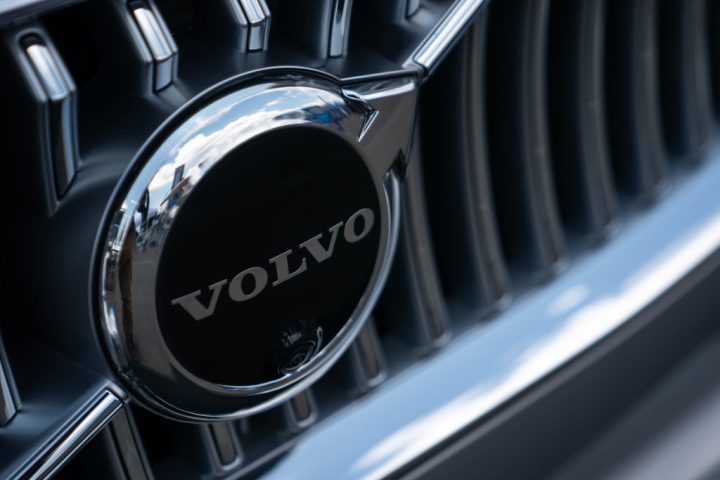Ulez currently may be Westminster’s favourite talking point, but sharper MPs and ministers are more concerned about the emissions from the front of your car than the back: data, lots and lots of it.
Buried in the electronic control unit of every new electric car is a cellular internet of things module (CIM). The CIM is a vital component of the system which controls the sensors, cameras, audio, geolocation capability, engine and more. Connected to the internet like your mobile phone, it acts as the gateway for information to go in and out of a car. Manufacturers use that information to improve design and performance. They send back software improvements and updates.
Soon, perhaps the only answer will be to issue ministers with bicycles
So why are ministers worried? Back in January, iNews reported that ‘officials had dismantled British government vehicles and swept them deliberately for Chinese tracking SIMs.’ It meant CIMs (the abbreviations are close and cause confusion). And they are not secretly placed, as alleged, but a necessary part of the car’s control unit. Nevertheless, they do egress data, and not just geolocation data. There were distressing reports earlier this year that Tesla engineers have shared film from cameras in people’s personal cars, including from inside Elon Musk’s garage, unbeknownst to their owners.
Audio data can also be transmitted back. No wonder one senior government member assured me that the security services were ‘petrified’. How many ministers use their time in cars to discuss the next piece of urgent business? How can it be a good idea to allow the Chinese to know all the to-ings and fro-ings of the prime minister in real time (or even in the future, by analysing preparatory visits made by the PM’s security officers)? It is bad enough trusting Elon Musk with government information derived from the back seat of a car, but quite another allowing the Chinese Communist party (CCP) to get its hands on it.
China is a world leader in new electric vehicles. From less than a 10 per cent market share in 2022, Chinese companies such as BYD are projected to win 15 per cent by 2025 and 60 per cent by 2030. China has overtaken Japan as the largest exporter of electric cars, likely to top 4 million units this year. BYD is planning to open a factory in France.
And the threat is not just from Chinese marques, or from Chinese-owned companies such as Volvo and MG. Any car with a CIM made by a Chinese manufacturer, such as Quectel or Fibocom, could have its data sucked up by the Communist party.
The threat is not just data gathering. Vehicles can be incapacitated by sending a command via the CIM. When the Russians looted Ukrainian agricultural machinery all they got was lumps of metal because John Deere turned them off permanently through the CIM. In theory, China could do the same to all vehicles with a Chinese CIM. One engineer in the cellular module business assured me that it would take less than a day of software writing to send covert commands to a CIM.
No doubt, to forestall protective measures by free and open governments, Chinese companies will swear that no data will be sent to China. This is what Huawei and TikTok executives assured US and UK governments, only to be caught out lying. ‘Trust me,’ said the crocodile to the monkey…
Even if ministerial or other sensitive cars are tested for spyware when they are imported, CIMs require frequent software updates by Chinese companies. There is no way of monitoring whether these updates contain malware.
As ever, the CCP, far more security conscious than we are, is ahead of the game. China has banned Tesla cars from military and sensitive areas. This includes places where Xi Jinping visits or stays, such as the holiday city of Beidaihe which hosts Communist party summer retreats, and recently the megacity of Chengdu, where he opened the World University Games.
Why does all this matter to you? Perhaps it doesn’t directly, if you don’t mind your personal data being in the hands of the CCP. You may not be a minister, MP, senior civil, or a Hong Kong, Tibetan or Uyghur dissident. But you might wonder whether it is wise to put into the hands of a potential enemy the wherewithal to collect vast amounts of data, some of it sensitive, or the ability to halt the nation’s transport at a time of tension, or to threaten to do so.
All this raises a broader question. What now counts as critical national infrastructure? Your car? Your smart meter? If Chinese companies fulfil CCP aspirations of dominating the CIM market and all smart meters were to contain a Quectel or Fibocom module, they could crash the electricity grid – which would make the difficulty of finding a charging station for your electric car academic.
Debarring Chinese CIMs is more important than banning Huawei from our telecommunications. The UK government has closed the front door by excluding Huawei from our 5G system, but it has left the back door open because Quectel CIMs are used in the routers which process the signal from ‘clean’ 5G and send the data back to China.
If the government doesn’t soon wake up to the security threat from Chinese CIMs, perhaps the only answer will be to issue ministers with bicycles. Ministers who insist on a chauffeur could follow the example of the head of the UK’s consulate in Hanoi in the early 1970s, an inveterate cyclist. The Vietnamese insisted that she must have a driver when making official calls. So she bought a tandem.






Comments